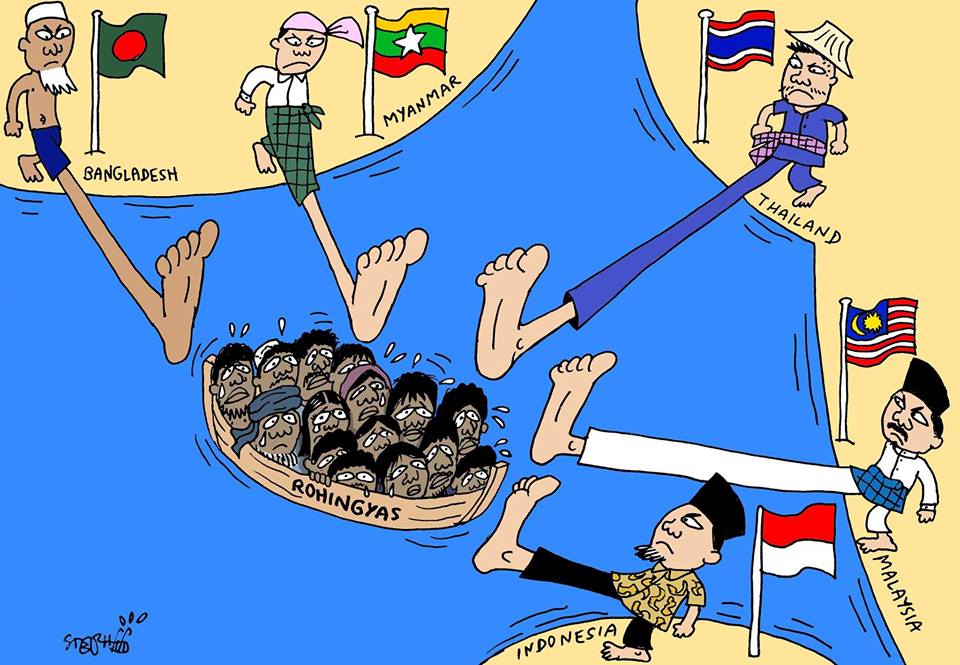TY AMK voters for supporting me & my team, & giving us e opportunity to serve you for another 5 yrs! – LHL #GE2015 pic.twitter.com/FZ9xFAjKoM
— Lee Hsien Loong (@leehsienloong) September 11, 2015
Lee Kuan Yew:
The guaranteed victory of the PAP can be attributed to the nation's founding father, Lee Kuan Yew. Singapore developed under semi-authoritarian democracy which alongside its economic growth, ensured its fate as an "Asian Tiger" state. With modernization under authoritarianism, its free-market economics caused realists to argue that Lee Kuan Yew managed the society in an almost cult of personality-like fashion in order to enable its quick transition into a developed nation. Given the importance of the PAP, the death of Lee Kuan Yew and Singapore's 50th anniversary were considerable factors that pushed the election forward to be held in 2015, despite each election normally being held every 5 years (with the last election in 2011).
Nepotism:
Lee Hsien Loong and Lee Kuan Yew
Political realism views that the world's state of anarchy is caused by self-interest as defined by power and Singapore is not exempt from this as the PAP intends to extend its absolute rule. Lee Kuan Yew, accused of nepotism, plans to maintain his legacy and governance through his son, Lee Hsien Loong. There have been three Singaporean prime ministers in total, from which two are from the Lee family. Current Prime Minister Lee Hsien Loong has now governed for twelve years and winning the 2015 election would mark the celebration of 50 years of PAP nationalism. This had a detrimental effect on the opposition as shown through the decline in vote percentage for all opposition parties. Lee Kuan Yew's other children coincidently also seem to have important government roles with his daughter as director of the National Neurological Institute and his youngest son as chief executive officer of Singapore Telecommunications.
Opposition Parties:
Waltz's structural realism views that states respond to systematic pressures and immediate action since states are the ultimate judge of their own interest. The immediacy of the 2015 election was also the PAP's response to potentially their biggest oppositional threat, the Workers' Party (WP).
Prior to the 2011 election, the WP saw an opportunity to rise when there had been increasing resentment towards the ruling party as there was a period affected by a common fear of unpredictable political change and instability.
Political leaders: Low Thia Khiang (WP) and Lee Hsien Loong (PAP)
As the political forum expanded through the Internet, other political parties were given a chance to express their views while interacting with larger audiences. Upset with high costs of living and foreign immigration policies, civilians criticised the PAP for its elitist image. Public opinion prompted Singaporeans to vote for a party that identified with the regular Singaporean instead.
Singapore Democrat Party leader Chee Soon Juan
Eventually as a result of this change in political landscape, opposition leader Chee Soon Juan was discharged from bankruptcy caused by a lawsuit initiated by Lee Kuan Yew, in order to participate in the 2015 election.
Freedom of Speech:
The PAP has sustained its authority by limiting and controlling freedom of expression to minimise riots and antipathy towards the party. Singapore has not embraced Western models of pluralistic democracy with the PAP actually owning and manipulating Singaporean media outlets such as Channel News Asia and the Straight Times, censuring any criticism of the Party.
As a recent example of censorship, teenager Amos Yee was arrested after posting a cartoon image of Lee Kuan Yew having sex with Margaret Thatcher as well as uploading a video praising his death, in which he compared him to Chairman Mao.
The 2015 Singaporean election has shown that the PAP is by all means exerting its influence onto Singaporean citizens to preserve an authoritarian style of governing. A discontinuation between the older and newer political generations represents changing attitudes amongst the nation and although the election was again won by the PAP, the Party might eventually need to conform to the norms of Western liberal democracy but will nonetheless retain its dominance over Singapore.






